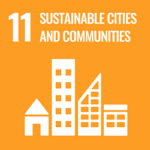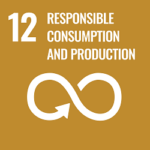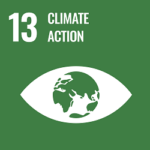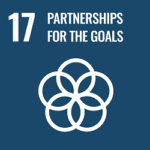Promoting a circular economy: Our Sustainable Repair Café
In celebration of International Repair Day on 18th October, Student Sustainability Architect Eleanor Smith reflects on her experience working with the University of Leeds Repair Café.
Launched in 2023, the Repair Café is open to anyone to bring broken items to be fixed with support from skilled volunteers. Over 250 items have been fixed so far including clothes, shoes, phones, laptops, small appliances, children’s toys and even an antique clock.
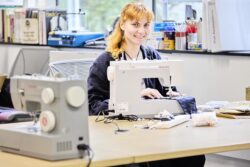
Eleanor Smith, Student Sustainability Architect.
As a Student Sustainability Architect, my work has focused on expanding the reach and impact of the Repair Café, by supporting the monthly events and attempting to increase student engagement, by designing resources and workshops for collaboration with student societies.
Supporting the Repair Café
I first joined the Repair Café as a volunteer at the start of the year, mainly supporting the textiles team in the repair of clothes, bags and zips, as there was high demand for the sewing departments services.
I wanted to get more involved in shaping the project and supporting its growth. In my role as Student Sustainability Architect, I’ve developed new skills, helped deliver events, and worked alongside an amazing community of students, staff, and volunteers who all share a passion for repair and sustainability.
Student society collaboration
To increase student engagement and support volunteer skill development, I decided to design and lead a collaborative event with the University’s Mountaineering Society, where students came together to learn to repair and maintain their own and shared club outdoor sports gear. The workshop was fully booked, and the feedback we received showed real appetite among students to gain practical skills and embrace circular economy behaviours.
Creating resources to support repairers
I created various resources to support the delivery and publicity of Repair Café events and researched ways to support attendees, for example by providing simple repair guides to support attendees to attempt repairs independently.
To support the outdoor gear repair workshop, I created zines with repair tips, local services, and sustainability resources as a take home resource for event attendees. These proved popular and will be used for future events. You can view the Outdoor Repair Zine here.
Inspired by the Helix makerspace, I also explored the idea of guidance cards that could help people attempt common repairs (like zips or simple electrical faults) independently or while waiting for a volunteer. The idea behind this is to help ease pressure on volunteers and to provide attendees with a foundation to attempt to repair their own items.
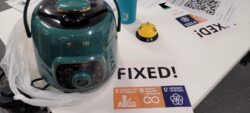
One of many items fixed at the Repair Café.
Building Student engagement
One of the challenges of the project has been spreading the word and reaching more students. To help bridge this gap, I promoted events through student society WhatsApp groups with committee support, by word of mouth, and with Instagram stories. These approaches proved effective in boosting student turnout, without overwhelming the Repair Café’s capacity.
What I’ve learned
Being part of the Repair Café has been hugely rewarding. I’ve not only built my practical and people skills but also felt part of a community that values sharing repair and craft knowledge and works to support each other. Some of the best moments have been seeing participants return with new items to fix, or gaining the confidence to try a repair themselves.
Looking ahead
As the Repair Café continues to grow its reputation as a welcoming, sustainable space on campus, there is scope to reach more people, share more knowledge and repair even more stuff. Some recommendations include:
- Offering an “Introduction to Sewing” workshop for students, responding to demand for textile repair skills.
- Expanding the use of zines and guidance cards to give participants practical resources they can use at home.
- Supporting a consistent volunteer team and ensuring staff have the resources needed to keep events running smoothly.
Final reflections
It’s been great fun to be part of such a hands-on, practical initiative where the impact is so immediate and visible. The Repair Café wouldn’t exist without the dedication of the Sustainability Service, Makerspace Specialist Dr Andy Holland, the Libraries team, and the incredible volunteers who give up their time. I’m grateful to have been part of this journey, and I hope the work I’ve contributed helps strengthen and expand this fantastic project for years to come.
Want to get involved with the Repair Café?
Anyone with basic or advanced skills in electricals, tech repair, hand or machine sewing or general tinkering can help!
Eleanor talks about her volunteer experience on Volunteer Stories
For more information on volunteering at our Repair Café, email [email protected]
See upcoming Repair Café dates on our events page.
We use the United Nations Sustainable Development Goals (SDGs) as a framework to guide our activity. Our work at our Repair Café is linked to the following SDGs:
- Goal 11: Sustainable Cities and Communities
- Goal 12: Responsible Production and Consumption
- Goal 13: Climate Action
- Goal 17: Partnership for the Goals
Find out more about our impact on the SDGs.
